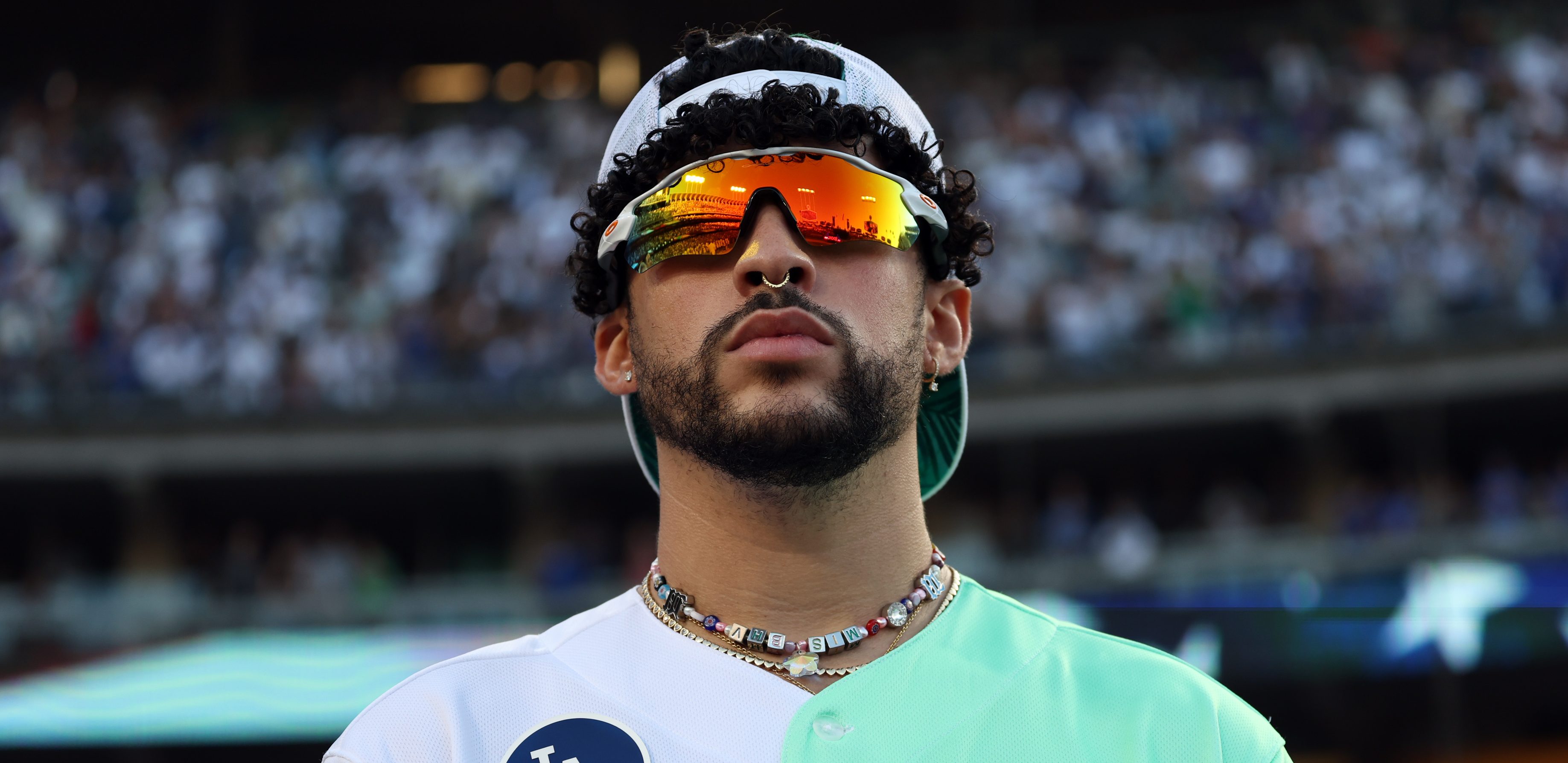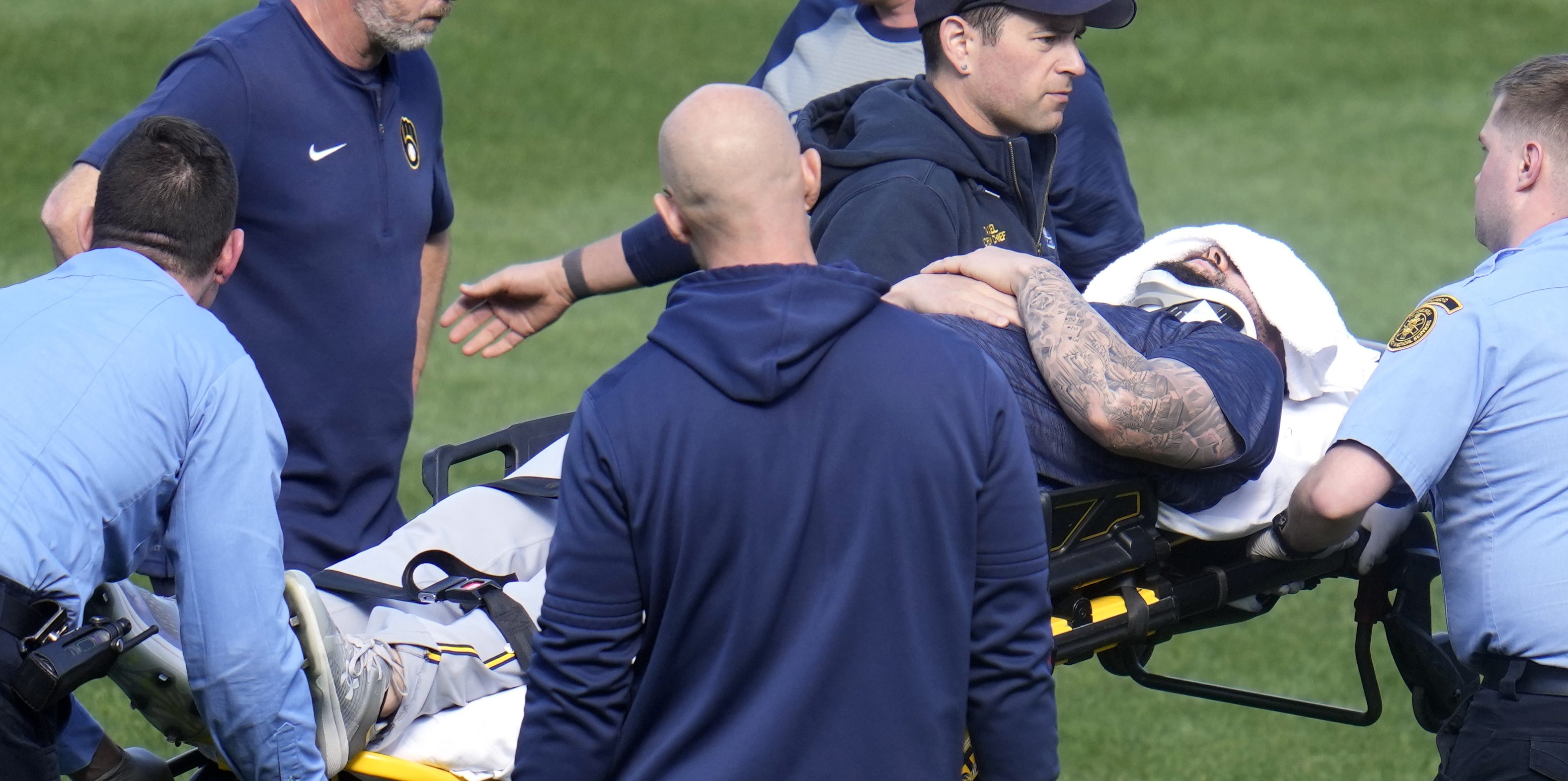Joe Girardi was right Thursday night when he said, "The reason you put the uniform on is to compete and win."
Winning is what pro sports are all about and the Phillies have been really bad at that for a decade now. They entered the 2021 season with one simple but challenging goal -- make the playoffs for the first time since Roy Halladay shredded his shoulder and lower back gutting out cutters and Ryan Howard blew out his Achilles on that painful October night 10 years ago.
The Phillies were eliminated from their latest playoff quest when the Atlanta Braves made it four straight NL East titles with a 5-3 win Thursday night. MVP candidate Austin Riley, a player the Phillies passed over when they selected Cornelius Randolph 10th overall in the 2015 draft, homered for the Braves and Ian Anderson, a pitcher the Phils passed over when they selected Mickey Moniak No. 1 overall in 2016, got the win. Anderson has been nicely tutored by Rick Kranitz. Run off as Phillies pitching coach after the 2018 season, Kranitz has popped champagne corks three years in a row with the Braves.
Stay in the game with the latest updates on your beloved Philadelphia sports teams! Sign up here for our All Access Daily newsletter.
The pain of the 2021 Phillies was more than the fact that they had an MVP candidate in Bryce Harper and a Cy Young candidate in Zack Wheeler and still couldn't make the playoffs. They controlled their own destiny with two months to go. After winning eight in a row to move into first place, they were behind the wheel in early August -- and promptly drove their season into a tree, losing 11 of 15 ballgames and relinquishing first place for good.
"We had the opportunity," Andrew McCutchen said after Thursday night's elimination. "The chances were there to capitalize and run away with it, really.
"It was there in our hands and it slipped away."
Girardi, as most leaders at this level do, manned up and put the blame on himself, saying, "I failed." You can question Girardi's moves and rest policies in the bullpen, but the truth is, he had a lot of help in this failure.
MLB
Just as it was looking like the Phillies were putting together a real, major-league quality, five-man starting pitching staff with the addition of Kyle Gibson and the emergence of Ranger Suarez, Zach Eflin went down with a season-ending knee injury. The current front office's acquisitions of Matt Moore and Chase Anderson could not fill the breach, and neither could Vince Velasquez, who was given another chance by the previous front office when the rest of the world knew it was time to move on.
But the failure of not being able to fill the void left by Eflin's absence went so much deeper than Moore or Anderson or Velasquez. The organization, for well more than a decade, has not only failed to draft and develop enough impact pitching, but enough pitching depth in general capable of helping a team like this one faced with a pitching shortage in a playoff race. Thank goodness the organization had a feather in its cap in Suarez or the shortage would have been really ugly.
Maybe second-year scouting director Brian Barber and new farm director Preston Mattingly can help fix the talent deficit, both on the pitching and position-player side. Mattingly comes with rave reviews for his energy and baseball acumen, but his background is not necessarily in player development and that's curious. Time will tell if the Phillies made the right hire there, but Dave Dombrowski, who has been here for only 10 months, knows what the hell he's doing and if he feels good about Mattingly then the guy deserves the benefit of the doubt. Barber, so far, looks like a very good hire.
It was just a year ago that owner John Middleton called out the Phillies organization, past and present, for its inability to draft and develop enough talent, save for a couple of championship stretches in the club's 130-plus year history. Barber and Mattingly -- and the staffs they have built and continue to build -- are crucial to the process because an organization can't survive by just throwing money at the Bryce Harpers and Zack Wheelers of the world.
Where did that get the Phillies in 2021?
And where would the 2021 Phillies have been without those guys?
Certainly not playing meaningful baseball in the final week of September in Atlanta.
In some ways, it's remarkable the 2021 Phillies lasted this long. Credit Harper for that. He lost Rhys Hoskins behind him -- do we appreciate Hoskins a little more now seeing how much the team struggled without him? -- and still kept on producing, at least until the Atlanta series when he proved human and the offense, prone to infuriating dry spells, endured one final drought. But Harper alone could not overcome the poor defense and the poor bullpen work that cost the Phillies games all season long. According to reputable data from Fangraphs, the Phillies rank 29th in the majors at minus-49 defensive runs saved. Only the Detroit Tigers are worse. And a year after recording the worst bullpen ERA (7.06) in the history of the game, the Phils have tied a major-league record with 34 blown saves which have directly led to 13 losses. With three games left, there's still time to set the record.
There were so many other shortcomings on this team. Back in April, the Phils were thought to have a top 3 in their starting rotation that would cause problems for other clubs if they could just get to October. But Aaron Nola, save for a few gems, had a disappointing season. He made a ton of mistakes over the heart of the plate and got hurt for them. He allowed 83 hits with two strikes on a hitter, the most in the majors. That's not him. He's a location guy. But Nola, once groomed by men like Bob McClure and Kranitz, lost his ability to locate with precision and that hurt him and the club. He consistently blamed a mechanical flaw in his delivery for his struggles, which begged questions. Why couldn't someone, perhaps first-year pitching coach Caleb Cotham, help him fix those mechanical issues? The team has spent millions on video, technology and data-based instruction. There was nothing there that could help Nola fix his mechanical issues?
Ultimately, the player is still responsible for his own performance and Nola, and many others, did not get the job done.
"Not that great, honestly," was Nola's assessment of his year.
Short, bitter, to the point -- a fitting epitaph for the team's season.
Subscribe to Phillies Talk: Apple Podcasts | Google Play | Spotify | Stitcher | Art19 | Watch on YouTube


